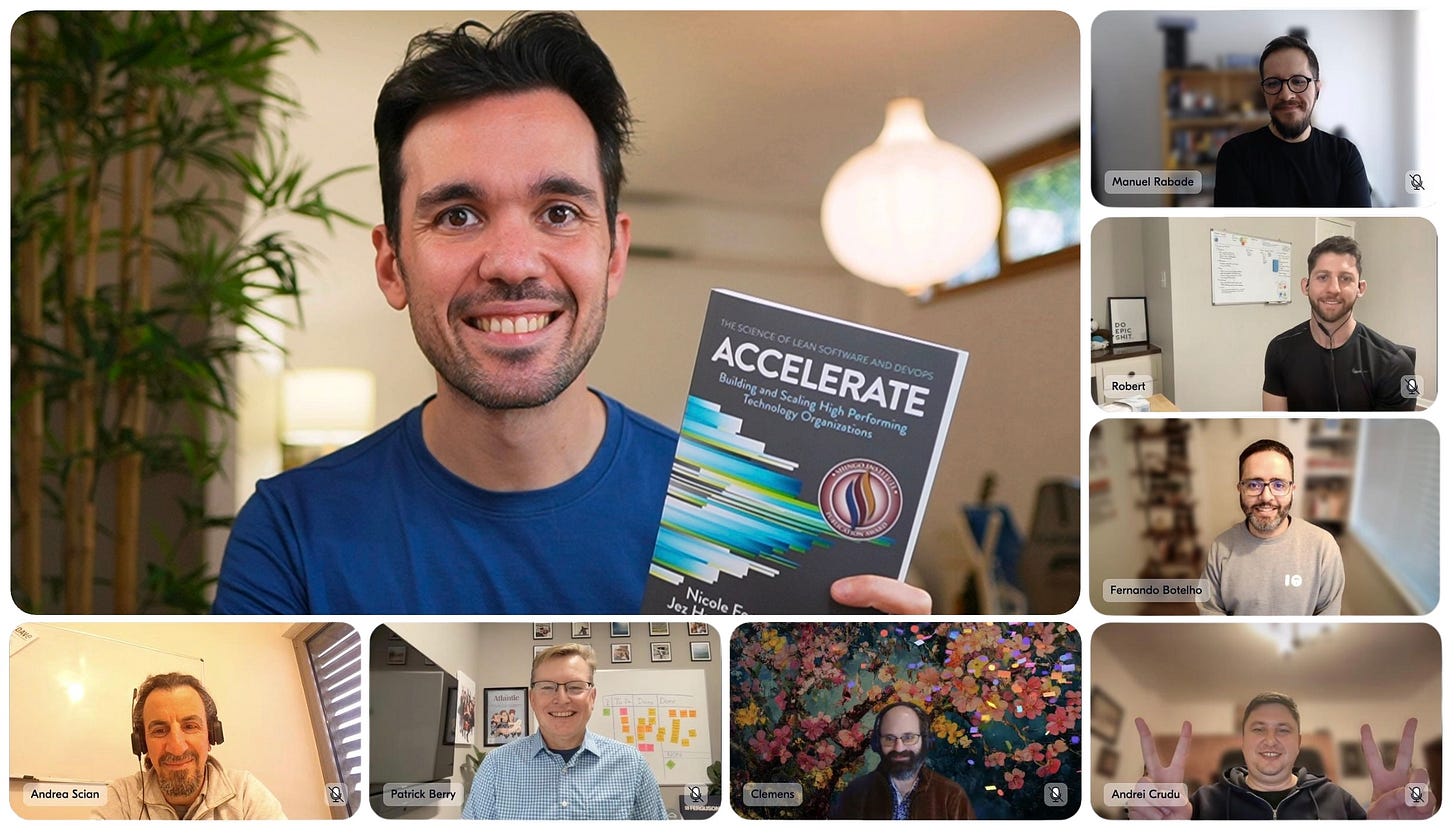Accelerate 📗
Our review and analysis of the seminal research by Nicole Forsgren, Jez Humble, and Gene Kim.
Every two months we read a book in our community book club, read it on our own, and review it together in a lively online event.
Last month it was the turn of Accelerate — the foundational research on software engineering performance by Nicole Forsgren, Jez Humble, and Gene Kim.
(shameless plug: you can join the community by becoming a paid member of Refactoring!)
This pick brought back memories.
I read Accelerate in 2019, during a particularly challenging time at my startup. The org had grown quite a bit after we had raised our Series A, and for the first time we were able to split engineers into long-lived, semi-independent teams working on separate product areas.
However, instead of going faster, things started feeling slower. Also, not uniformly so: I felt that some teams were doing better than others, but I couldn’t quite put my finger on why.
So at the time I picked up Accelerate with promise, as I saw one of the authors was Gene Kim. Gene had already written The Phoenix Project, which back then was my favorite engineering book (and still kind of is?!)
Accelerate turned out to be special indeed, marking a before-and-after moment in how I thought about engineering work. It is special in a variety of ways, but first of all because it is based on an astounding six years of research, where the authors surveyed 20,000+ engineers and managers, across 2,000+ organizations.
It was the largest research ever performed on DevOps and software delivery practices, by orders of magnitude.
Such research was also incredibly conclusive. It found clear patterns that correlate good practices to good software delivery performance, and, in turn, good software delivery to business success.
Today, seven years after publication, the foundations laid by Accelerate about how we think at engineering performance, and how we measure it, are still rock-solid and undisputed. So, this review has a two-fold goal: we are going to review the main findings and teachings of the book, but also look at their legacy, and how we have built on top of them since then.
Here is the agenda for today:
📊 More than just metrics — if you think Accelerate == DORA metrics, you are simply missing out.
🪴 Cultural capabilities — looking into transformational leadership and generative culture.
🔄 Process & management capabilities — how to make your work flow well, create tight feedback loops, and minimize waste.
⚙️ Technical capabilities — how to enable elite software delivery that will drive immense business value.
💡 Key findings — my favorite takeaways from the book, like the speed vs stability paradox, and the link between engineering and business excellence.
Let’s dive in!




